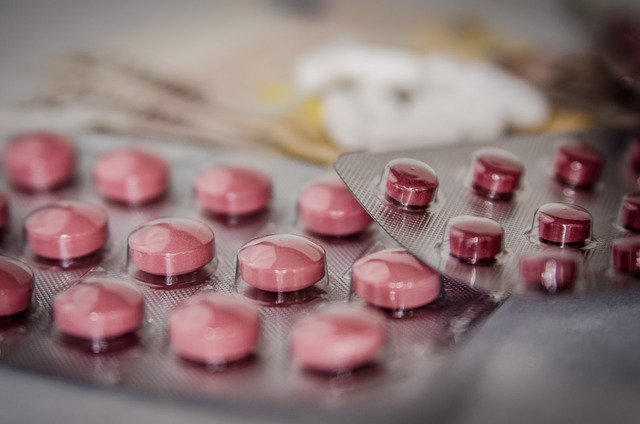How Erectile Dysfunction Is Commonly Treated
Erectile dysfunction might be addressed through lifestyle changes, counseling, or medical therapies based on individual needs. Treatment approaches vary depending on underlying factors. Learning about the methods may offer helpful context for those seeking information on care.

Erectile dysfunction represents a significant health concern that can impact quality of life, relationships, and overall well-being. Medical professionals have developed numerous evidence-based approaches to address this condition, ranging from simple lifestyle adjustments to sophisticated medical interventions. The key to successful treatment often lies in identifying the underlying causes and selecting the most appropriate therapeutic strategy.
Erectile Dysfunction Treatments and Therapy Options
Medical treatment for erectile dysfunction typically begins with a comprehensive evaluation to determine the root cause. Oral medications known as phosphodiesterase type 5 (PDE5) inhibitors represent the first-line treatment for many patients. These medications work by increasing blood flow to the penis during sexual arousal. Healthcare providers may also recommend vacuum erection devices, which create negative pressure to draw blood into the penis, or penile injections that deliver medication directly to the erectile tissue.
For cases where oral medications prove ineffective, more advanced options include penile implants or vascular surgery. Hormone replacement therapy may be appropriate for men with documented testosterone deficiency. Each treatment option carries specific benefits and considerations that require careful discussion with a qualified healthcare provider.
Treatment Options for Erectile Dysfunction Explained
The selection of appropriate treatment depends on multiple factors including the patient’s overall health, the severity of symptoms, and personal preferences. Oral medications work for approximately 70% of men with erectile dysfunction, making them the most commonly prescribed treatment. These medications are typically taken 30 minutes to 4 hours before sexual activity, depending on the specific formulation.
Injection therapy involves administering medication directly into the penis using a fine needle. While this approach may seem intimidating, many patients find it highly effective when oral medications fail. Vacuum devices offer a non-medication alternative that can be used as needed without systemic side effects.
Managing Erectile Dysfunction with Lifestyle Changes
Lifestyle modifications play a crucial role in managing erectile dysfunction and can significantly improve treatment outcomes. Regular physical exercise, particularly cardiovascular activities, helps improve blood circulation and overall vascular health. Maintaining a healthy weight reduces the risk of diabetes and cardiovascular disease, both of which contribute to erectile dysfunction.
Dietary changes, including reducing processed foods and increasing consumption of fruits, vegetables, and whole grains, support vascular health. Limiting alcohol consumption and eliminating tobacco use can dramatically improve erectile function. Stress management techniques such as meditation, yoga, or counseling help address psychological factors that may contribute to the condition.
Adequate sleep, typically 7-9 hours per night, supports healthy hormone production and overall sexual health. Regular communication with partners about sexual concerns can reduce performance anxiety and improve intimate relationships.
Non Surgical Erectile Dysfunction Treatments and Causes
Non-surgical approaches encompass a wide range of effective treatments that avoid invasive procedures. Psychological counseling, either individual or couples therapy, addresses emotional and relationship factors that may contribute to erectile dysfunction. Cognitive-behavioral therapy helps patients develop coping strategies and reduce performance anxiety.
Shock wave therapy represents an emerging non-invasive treatment that uses low-intensity sound waves to improve blood flow to the penis. This approach shows promise for men with vascular-related erectile dysfunction. Acupuncture and herbal supplements are alternative treatments that some patients find beneficial, though scientific evidence varies for these approaches.
Understanding the underlying causes helps guide treatment selection. Vascular causes include diabetes, high blood pressure, and atherosclerosis. Neurological causes may involve spinal cord injuries or multiple sclerosis. Hormonal imbalances, particularly low testosterone, can significantly impact erectile function. Psychological factors such as depression, anxiety, and relationship stress also play important roles.
| Treatment Type | Provider/Method | Cost Estimation |
|---|---|---|
| Oral Medications | Generic PDE5 inhibitors | $10-30 per dose |
| Brand Name Medications | Viagra, Cialis, Levitra | $50-70 per dose |
| Injection Therapy | Alprostadil injections | $20-40 per dose |
| Vacuum Devices | Medical-grade pumps | $150-500 one-time |
| Penile Implants | Surgical procedure | $15,000-25,000 |
| Counseling Sessions | Licensed therapists | $100-200 per session |
Prices, rates, or cost estimates mentioned in this article are based on the latest available information but may change over time. Independent research is advised before making financial decisions.
Successful treatment of erectile dysfunction often requires a comprehensive approach that combines medical interventions with lifestyle modifications. Working closely with healthcare providers ensures that treatment plans are tailored to individual needs and circumstances. Many men find that combining multiple treatment strategies produces the best results, and patience is often required as different approaches are evaluated. With proper medical guidance and commitment to treatment, most men can achieve significant improvement in erectile function and overall sexual satisfaction.
This article is for informational purposes only and should not be considered medical advice. Please consult a qualified healthcare professional for personalized guidance and treatment.




